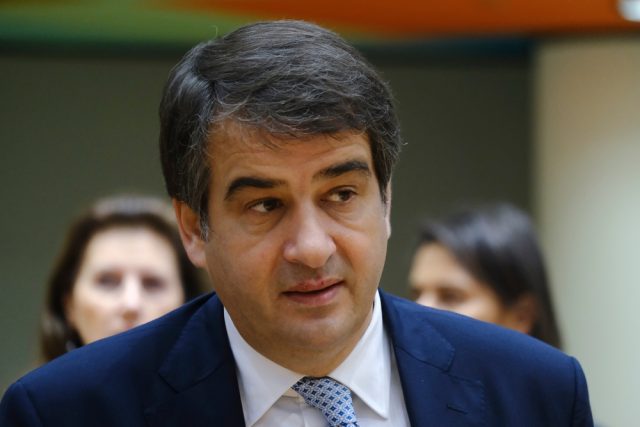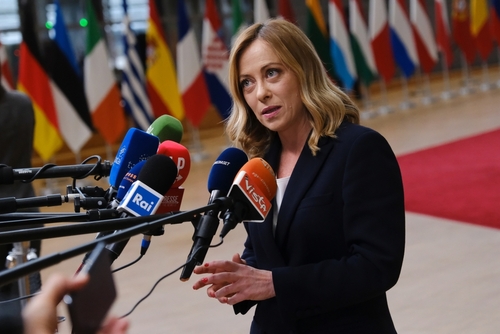
The Countries’ crucial role in European institutions
Giorgia Meloni (FdI, ECR) has decided to focus on Raffaele Fitto (FdI, ECR) to have a weighty role in the European Commission, once again led by Ursula von der Leyen (CDU, PPE). Fitto, coming from the South of Italy, Lecce district, is preparing to land in Brussels and thanks the Italian Prime Minister on social media.
The president herself has underlined the importance of having a trusted person within the European Commission, especially in a delicate period like this one in which Italy finds itself having to deal with crucial issues such as the better-known PNRR, which Fitto as Minister of European Affairs has so far managed with great skill, bringing over 90% of the funds allocated to their destination.
The opposition is clearly doing its part. The opposition is clearly making an effort. Elly Schlein, the secretary of the PD (S&D), has expressed doubts about Fitto and his ability to handle the diverse European context. On the other hand, from the other members of the government’s coalition, there is confidence that Fitto will represent the Italian candidate for the European Commission and not a party nominee. Forza Italia (FI, PPE), represented by his leader and Italian Vice Prime Minister Antonio Tajani will support Fitto and this could play a role in positively influencing also the European Popular Party’s opinion on the Italian candidate.
The comments of another influential politician from the same region as Fitto quickly followed. Antonio Decaro (PD, S&D), despite political differences, acknowledged the integrity and intellectual honesty of Fitto. Decaro stated that he had an exceptional working relationship with Fitto and that they both prioritized the well-being of the nation over party allegiance.
Tajani, Von Der Leyen, Metsola: this is the trident of the PPE that met yesterday to discuss the Fitto nomination. All three agree on the choice of the long-standing politician who has already been Governor of Puglia region and also Minister with Berlusconi Government from 2008 to 2011. In particular, Deputy Prime Minister and Foreign Minister Tajani hopes that Fitto will have an important portfolio within the European Commission. Italy, in fact, is not only one of the founding Countries of the European Union but also one of the first important economies within it.
 Fitto, within the Meloni Government, holds key delegations, as mentioned, including European Affairs and coordination of the PNRR, and his absence could create a significant void. Meloni will have to face the challenge of appointing a successor who can maintain Italian influence in Europe and manage the delicate internal issues related to the distribution of delegations. A small government reshuffle cannot, in all respects, be ruled out, perhaps “moving” some Ministers to settle pending issues. For now, the confirmed line is that of maintaining the delegations within Palazzo Chigi, with the still uncertain hypothesis of creating a new undersecretary.
Fitto, within the Meloni Government, holds key delegations, as mentioned, including European Affairs and coordination of the PNRR, and his absence could create a significant void. Meloni will have to face the challenge of appointing a successor who can maintain Italian influence in Europe and manage the delicate internal issues related to the distribution of delegations. A small government reshuffle cannot, in all respects, be ruled out, perhaps “moving” some Ministers to settle pending issues. For now, the confirmed line is that of maintaining the delegations within Palazzo Chigi, with the still uncertain hypothesis of creating a new undersecretary.
The nominee of Raffaele Fitto as the italian candidate to the European Commission gathered the enthusiasm of the youth movement of Fratelli d’Italia as well. The local representatives from Puglia expressed a sense of pride for the fact that one of their representatives was chosen for such a prestigious position, seeing in this appointment a recognition of the work done over the years and a positive signal for the future of their region, which next year will also be called to vote for the new local government.
In conclusion, the selection of Raffaele Fitto as European Commissioner is a pivotal development for Italian politics. If he leaves Palazzo Chigi, Italy might lose a influential minister. However, his expertise will enhance Italy’s influence in Brussels, leading to positive impacts on both European and national policies. The success of this appointment will be vital for Italy’s future, given the significant role the European Union plays in numerous important dossiers and issues.



 Subscribe
Subscribe